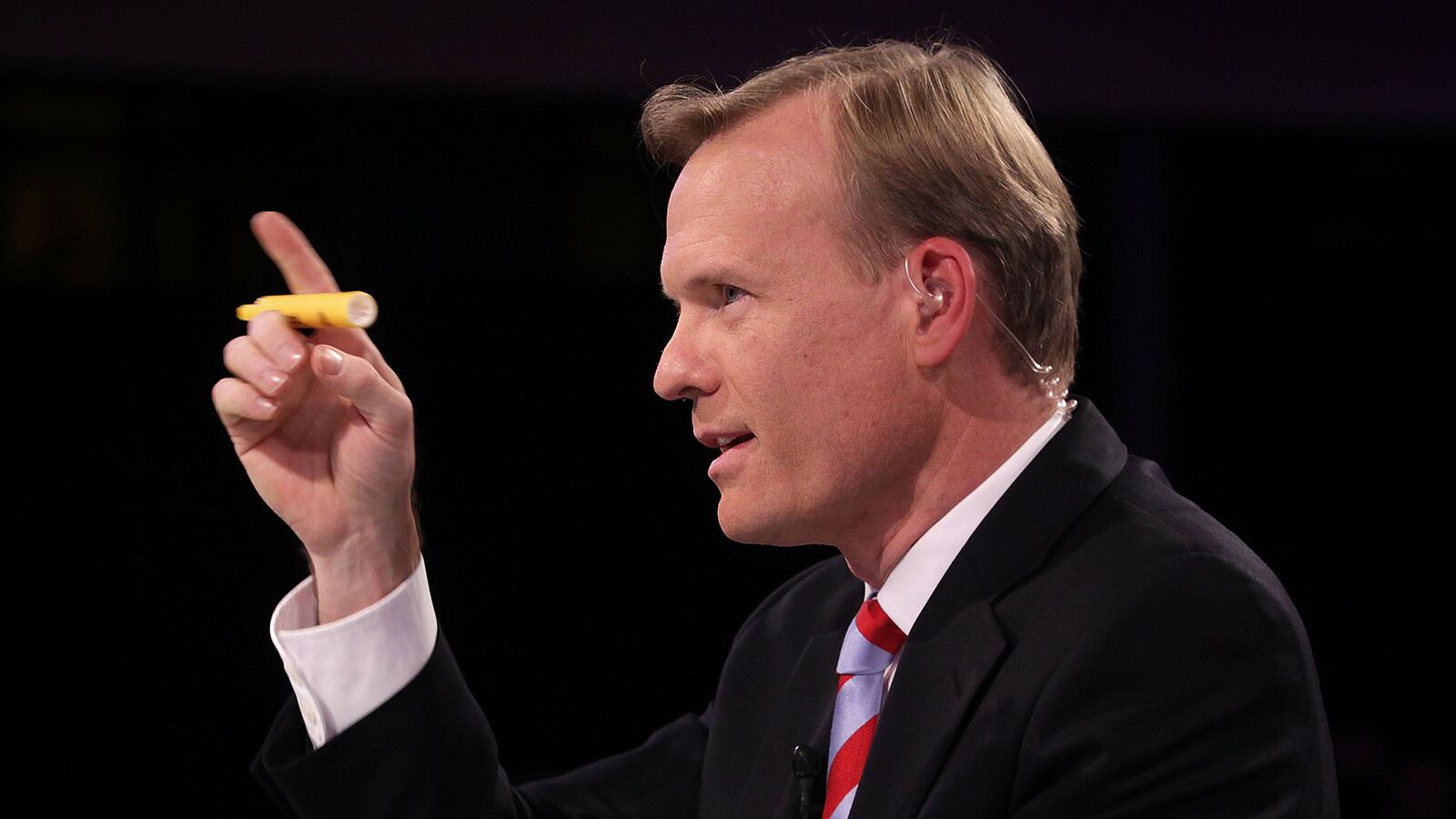The real winner of Saturday night’s Democratic primary debate wasn’t Hillary Clinton, Bernie Sanders, or Martin O’Malley. It was CBS moderator John Dickerson.
Media watchers and political junkies may remember that before becoming the face of Face the Nation, Dickerson was the reporter who stumped George W. Bush with a simple question in 2004: “What would your biggest mistake be, would you say, and what lessons have you learned from it?”
“I wish you would have given me this written question ahead of time, so I could plan for it,” the fumbling president responded.
Though there were none of those jaw-dropping moments during tonight’s debate, Dickerson furthered his reputation for asking appropriately aggressive questions without the slightest hint of condescension, disrespect, or self-righteousness.
Social media responses to Dickerson’s moderation, both left and right, seemed to agree.
His questions on Saturday evening were clearly aimed at drawing distinctions between the three candidates on stage. Not a single candidate whined or turned the debate into a media-bashing affair.
Because of Dickerson, the night never turned into the crosstalk-fest we’re all used to. “Governor, you’re breaking the rules!” he admonished O’Malley during an interruption. “We’ve got to take a break or the machine breaks down,” he later joked, ending another bout of interjections. To be fair, it’s much easier to corral three slippery politicians than it is to wrangle, say, 12 of them.
From the outset, Dickerson pressed Clinton on her foreign policy record. Even though it’s clear she’ll waltz her way to the Democratic nomination, the moderator did his duty to ask important questions.
“How did you get it wrong?” he asked of her support for intervention in Libya—a move that her critics say led to deadly attacks on the U.S. consulate in Benghazi and fueled the rise of ISIS. Dickerson noted that a key lesson of deposing Muammar Gaddafi was to “have a plan for after,” and yet, he asked, “Wasn’t that supposed to be one of the lessons that we learned after the Iraq War?”
At another point he asked, “Won’t the legacy of this administration—which you were a part of—won’t that legacy be that it underestimated the threat from ISIS?” When Clinton offered a non-answer, Dickerson pressed further: “You’ve got prescriptions for the future, but how do we even know those prescriptions are any good if you missed it in the past?”
Sanders also faced heat from Dickerson, like when the moderator asked a key question for any Democratic nominee who goes up against the rising conservative: How would you work with the “revolution on the other side” in anti-establishment Republicans who’ve effectively ousted John Boehner and rallied behind the likes of Ben Carson. The Vermont senator’s response was underwhelming.
Dickerson’s pointed moderating also drew out the most fascinating exchange in an otherwise sleepy night.
“You have received money from Wall Street,” he said to Clinton, “so how will you convince voters you will level the playing field when you’re indebted to some of its biggest players?” Her deflective answer gave Sanders a moment to distance himself from the frontrunner on financial policy and big money ties, and he did. And then Clinton fired back by invoking 9/11 and her feminism.
If anything negative could be said of Dickerson’s performance, it would be that he wasted too much time early on with a semantic question about whether the United States is at war with “radical Islam.” On the other hand, that certainly boosted Dickerson’s credentials with conservative voters that he can ask questions that matter to their voting base—something that will come in handy if he ever moderates a Republican event.
It certainly won’t change much in the primary race—especially with Clinton’s 20-point lead in most polling—but Dickerson’s forceful questioning proved that it’s possible to get candidates to differentiate themselves without reliance on theatrics.
CBS will host a Republican primary debate in South Carolina next February. One can only hope they tap Dickerson to moderate that too.






